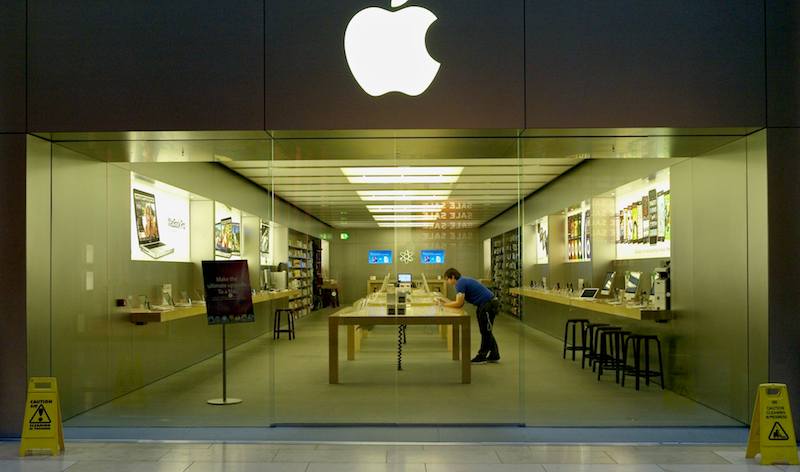Google’s threat to close its operations in China has been treated as big news in the mainstream media. (As a technology columnist I’ve grown accustomed to the fact that Google is one of the triggers of senior editorial interest in technology!) Here’s how the NYT, for example, reported it:
BEIJING — Google said Tuesday that it would stop cooperating with Chinese Internet censorship and consider shutting down its operations in the country altogether, citing assaults from hackers on its computer systems and China’s attempts to “limit free speech on the Web.”
The move, if followed through, would be a highly unusual rebuke of China by one of the largest and most admired technology companies, which had for years coveted China’s 300 million Web users.
The more I think about it, though, the more puzzled I become. First of all, it only makes sense if Google knows that the cyberattack that is one of the alleged grounds for its threat was actually orchestrated or conducted by the Chinese government. But the company spokesman on Radio 4 this morning declined to comment on that. Secondly, it’s puzzling because Google must have known what it was getting into four years ago when it agreed to the Chinese regime’s conditions for operating in that country: that was the moment when we saw the transition from Google-the-religion to Google-the-corporation. I wasn’t particularly surprised when the company agreed to bend the knee to the Chinese. Corporations obey the law, and are as ethical or unethical as they can get away with. Expecting a shareholder-owned entity to do more than obey the law is a bit like expecting my cats to obey my injunctions to be kind towards birds and small rodents. It goes against their natures.
Thirdly (and following on from that), there’s the business angle. If I were a shareholder in Google, would I be pleased to see the company turning its back on the most important emerging market in the world? (Well, I might: but I’m not running a pension fund.) Looked at through the prism of pure corporate strategy, it seems like an unwise step.
And then, finally, there’s a whiff of hubris about it. Google is big and powerful, but it’s a flea compared to the authoritarian regime that runs the world’s next superpower. I’m reminded of the story about Stalin’s alleged retort to news that the Pope was opposed to something he was planning: “And how many divisions has the Pope?”
So what is one to make of it? One interpretation is that it’s a business decision dressed up in ethical garb.
The company has been constantly losing market share against its rival Baidu in the last few months and is currently left with only about 17% of the Chinese search market.
In other words, Google has decided that the Chinese search market is a lost cause and has made a strategic decision to cut its losses and pull out.
Another slant on it concerns the way the company has gone about this. Here’s a Chinese perspective on it:
With its bold statement towards the Chinese government, Google basically closed their doors in China. Business tactics that may work in countries like the US do not work in China. In China there is a strong feeling about building relationships. There is a strong feeling about “saving face”. There is a strong culture and history that the people are very proud of.
Sure there are problems. And yes there are problems that need to be fixed. But the question that arises is what is the best way to go about it.
I wrote a blog post about how to do business in Asia. In this post I summarized the lessons that could be learned from President Bill Clinton’s visit to North Korea to release the US reporters. Bill did not prove that he was right and North Korea was wrong. Instead, he approached the government with respect and he approached them in a way that was aligned with their culture. Bill gave them a path to change their position without losing face. By doing this, Bill achieved a result that many thought was impossible. North Korea released the US reporters to the US.
Unfortunately, Google did just the opposite today. They brought US tactics to the Chinese government. Not any US tactics, but US tactics that are against the grain of Chinese culture. They did not show respect. They did not allow a path for “saving face”. They did not build the relationship.
Funnily enough, even thought I disapproved of Google’s 2006 decision to filter search results, I thought that the company was approaching it sensibly by arguing that it was at least letting Chinese searchers know when they’d been banned from seeing something. And that was better than nothing.
Anyway, we’re left with an enigma. There’s more to this than meets the eye. Wish I knew what.
LATER: One answer might be that it’s a move that resonates with official thinking within the Obama Administration. For example, this source reports that:
Google’s decision Tuesday to risk walking away from the world’s largest Internet market may have come as a shock, but security experts see it as the most public admission of a top IT problem for U.S. companies: ongoing corporate espionage originating from China.
It’s a problem that the U.S. lawmakers have complained about loudly. In the corporate world, online attacks that appear to come from China have been an ongoing problem for years, but big companies haven’t said much about this, eager to remain in the good graces of the world’s powerhouse economy.
Google, by implying that Beijing had sponsored the attack, has placed itself in the center of an international controversy, exposing what appears to be a state-sponsored corporate espionage campaign that compromised more than 30 technology, financial and media companies, most of them global Fortune 500 enterprises.
The U.S. government is taking the attack seriously. Late Tuesday, U.S. Secretary of State Hillary Clinton released a statement asking the Chinese government to explain itself, saying that Google’s allegations “raise very serious concerns and questions.”
“The ability to operate with confidence in cyberspace is critical in a modern society and economy,” she said.
STILL LATER: Tech Review has a piece about the attack which allegedly triggered Google’s announcement:
Though Google has not disclosed the exact nature of the attacks, [David] Drummond [Google’s chief legal officer] wrote: “In mid-December, we detected a highly sophisticated and targeted attack on our corporate infrastructure originating from China that resulted in the theft of intellectual property from Google.” He added that the company has gathered evidence that 20 other large Internet, finance, technology, media, and chemical companies were also attacked.
In Google’s case, the attackers tried to get into Gmail accounts belonging to Chinese human-rights activists, Drummond said. The company believes that the efforts were not successful, but that hackers have been targeting human-rights activists based in other parts of the world through a range of hacking techniques.
Amichai Shulman, CTO of Imperva, a data-security company based in Redwood Shores, CA, says Google probably called the attack “highly sophisticated” because the hackers got into the heart of its database and password list. “The intellect and resources required to pull off such a surgical attack are staggering considering the defenses Google has put in place to protect digital assets,” he says.





